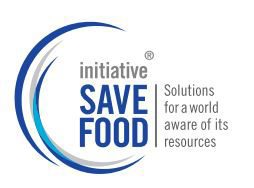Sponsors Announce Agenda for the 2024 World Cold Chain Symposium
Category : Press Release
Washington, DC October 11, 2024 – The Global Food Cold Chain Council (GFCCC) and UN Environmental Programme (UNEP) OzonAction today announced speakers for the 2024 World Cold Chain Symposium on October 26, 2024. The Symposium, which is themed, “Building a Sustainable Cold Chain” will take place beginning at 1:00 PM local time in Bangkok, Thailand. The program will be broken into four sessions, emphasizing the end-to-end development of a sustainable cold chain, including: data gathering and modeling, technology innovation, training and servicing, and finance mechanisms.
WCCS sponsors are very pleased to announce the agenda and invited speakers for this event, who will be sharing their knowledge and experiences of both developing and growing sustainable cold chain development with participants. The welcoming speaker is Meg Seki, Ozone Secretariat for the United Nations Environment Programme. Opening remarks will also be provided by Ed Dryden, President of Refrigeration for Carrier Corporation. Other speakers invited include:
- Session 1: The Impact and Benefits of the Cold Chain
- Rajan Rajendran, Co-Chair of RTOC, TEAP
- Nihar Shah, Presidential Director, Global Cooling Efficiency Program, Lawrence Berkeley National Lab
- Marco Duran, Director of Policy and Global Partnerships Department, IIR
- Aaron Friedman-Heiman, University of Michigan
- Shelie Miller, Professor at the University of Michigan
- Session 2: Technology for Cold Chains – Connecting the Dots
- Greg Brooker, ANZ Refrigerant Specialist, ACTROL
- Andrea Voigt, Vice President, Global Public Affairs, Sustainability & Communications, Danfoss
- Helen Walter-Terrinoni, Director, Global Climate Policy, Trane Technologies
- Devendra Gupta, CEO and Founder, Ecozen Solutions
- Session 3: Training, Servicing and Capacity Building Issues – Challenges and Opportunities
- Jeanne de Crepy, Project Manager, Supply Chain, UN World Food Program
- Richard Scotney, Global Energy Efficiency Lead, World Wildlife Fund
- Jim Curlin, Head, UNEP OzonAction
- Pramod Singh, Senior Director, Alliance for an Energy Efficient Economy
- Session 4: Momentum in Financing Opportunities and Mechanisms
- Tina Birmpili, Chief Officer, Multilateral Fund
- Jonathan Naimon, Managing Partner, Sustana Cooling Partners
- Rajchanee Chanawatr, Principal Investment Officer, IFC
Information and Registration can be found at the Symposium website: https://wccs.performedia.com/
UNEP is an Implementing Agency of the Multilateral Fund of the Montreal Protocol on Substances that Deplete the Ozone Layer. OzonAction’s goal is to enable developing countries to meet and sustain their compliance obligations under the treaty.
GFCCC is an independent not-for-profit industry organization that seeks to simultaneously reduce food waste, and related greenhouse gas emissions in the processing, transportation, storage, and retail display of cold food by expanding and improving access to energy efficient low-global warming potential technology.

